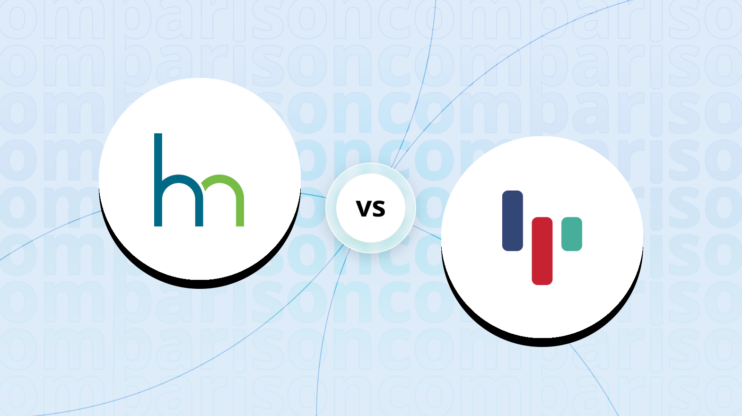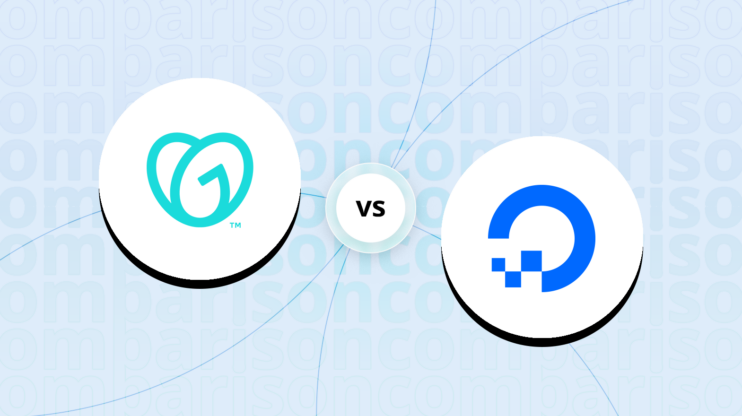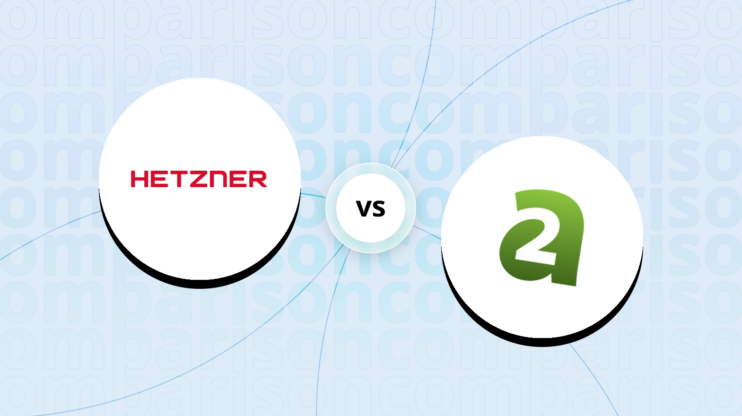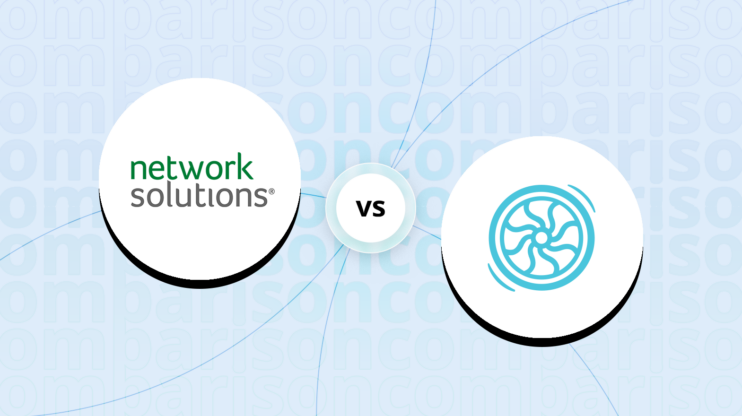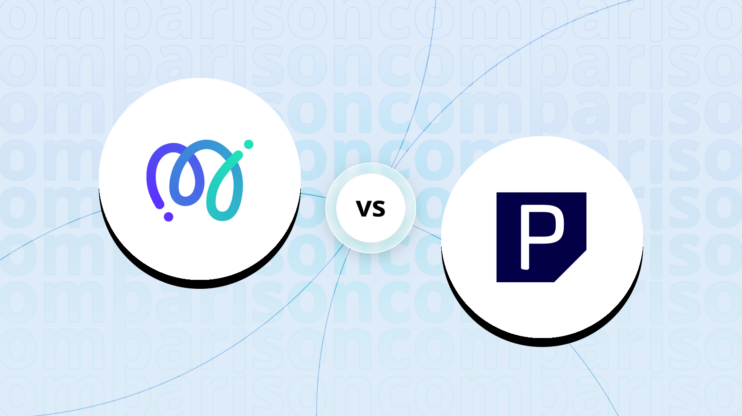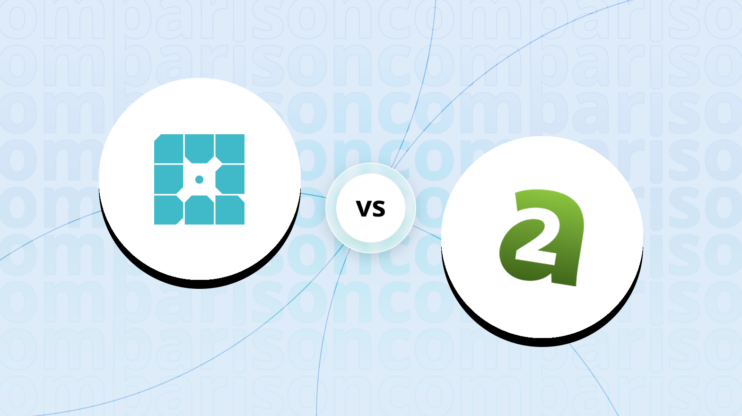Namecheap vs Pressidium: Final verdict
Looking over Namecheap vs. Pressidium, the comparison highlights two strong web hosting providers that cater to different needs based on their features, performance, and value.
Pressidium (Overall grade: 8.6)
offers specialized managed WordPress hosting with features like dynamic load balancing, robust security, automated backups, and a global CDN, making it an excellent choice for WordPress developers, high-traffic websites, and agencies. The platform’s strengths lie in its infrastructure reliability, high-performance setups, and expert support that caters specifically to WordPress environments. However, it lacks hosting versatility beyond WordPress and does not offer built-in email hosting, which may limit its appeal for users wanting broader service coverage.
Namecheap (Overall grade: 7.2)
stands out with its variety of hosting types, including shared, VPS, and dedicated hosting, as well as affordable plans and user-friendly features. Namecheap provides impressive uptime guarantees and a comprehensive set of tools, including a website builder, free domains, SSL certificates, and extensive email hosting services. While it’s a solid choice for small to medium-sized businesses and those needing a cost-effective solution, it does fall short in a few areas, such as high-end performance optimizations and specialized WordPress support compared to Pressidium.
 Overall grade:7.2 |
 Overall grade:8.6 |
|
|---|---|---|
| Uptime and Availability | 8.0 | 9.2 |
| Hosting Performance | 8.2 | 9.3 |
| Hosting Security | 8.5 | 9.5 |
| Price | 8.7 | 8.7 |
| Hosting Features | 7.5 | 5.5 |
| Ease Of Setup | 8.8 | 9.0 |
| User Management | 0.0 | 8.9 |
| Customer Support | 8.0 | 8.8 |
| User feedback | 4.3/5 | 4.8/5 |
Hosting types offered
Both platforms provide a variety of hosting types, each designed to meet the different needs of users.
 |
 |
|
|---|---|---|
| Shared hosting | ||
| Cloud hosting | ||
| WordPress hosting | ||
| Ecommerce hosting | ||
| VPS hosting | ||
| Dedicated hosting |
Although both offer a variety of hosting plans tailored to different needs, in certain cases, one platform may prove to be more suitable.
Detailed comparison
Uptime and availability
Evaluates the average uptime statistics, uptime guarantee and overall availability of the hosting
provider
Score Components:
- Uptime percentage (30%): evaluates the uptime statistics in given period of time
- Uptime guarantee (20%): Assesses if the platform offers an uptime guarantee and
whether the actual uptime matches the promised guarantee. - General performance (25%): Evaluates how fast is the average response time and overall
it’s stability. - Responsiveness (10%): Adaptability to different devices and screen sizes.
- Availability (25%): Reflects the total downtime and number of outages.
 8.0
8.0
 9.2
9.2
🏆 Winner Pressidium: Offers exceptional reliability and uptime with a highly-available load balanced architecture.

Pressidium® Managed WordPress Hosting stands out for its reliable infrastructure and high availability. Featuring a 5-node infrastructure with no single points of failure, Pressidium ensures continuous service, even during traffic spikes. Automated offsite backups and 24x7x365 monitoring reinforce its strong reliability. Users benefit from dynamic load balancing and multiple global datacenters that scale easily.

Namecheap offers impressive uptime guarantees, particularly with its 100% uptime for shared, business, and dedicated accounts. Tests have shown Namecheap achieving an average uptime of 99.96%. The service includes compensation for downtime and responsive monitoring tools, although response times can be slower than some competitors. Namecheap’s robust uptime guarantee and practical compensation make it a strong contender.
Which one has better hosting performance?
Score Components:
- Hosting speed (30%): This includes SSD quality, Load times, PageSpeed score ranges,
additional information on website speed, built-in plugins for performance enhancement, available caching
methods, and CPU/RAM options - CDN (20%): Considers whether CDN is available or not, whether it’s free or paid, and
the quality of the CDN service - Available data centers (30%): Evaluates the number of data centers and their locations
globally. - Scalibility (20%): Looks at whether elastic scaling is available, the process required
to scale (manual upgrade vs. automatic scaling), the presence of dedicated servers, and the costs
associated with scaling.
 8.2
8.2
 9.3
9.3
🏆 Winner
Pressidium: For users who prioritize speed and advanced technological infrastructure, Sitrground is more suitable for high-demand websites that require reliable and fast global access.
Pressidium and Namecheap both offer SSD storage and free CDN integration to enhance hosting performance and speed. Pressidium, however, showcases faster load times with a heavyweight theme clocked at 1.69 seconds, compared to Namecheap’s 4.85 seconds. Pressidium operates 11 global data centers, which surpasses Namecheap’s six, potentially offering better local loading speeds and content delivery. Moreover, Pressidium’s technology is more up-to-date, which may contribute to its superior performance.
Website Speed
Pressidium excels in website speed with an LCP time of 872ms, significantly outperforming Namecheap’s 1.8 seconds. Although both fall within the acceptable range of LCP (up to 2.5 seconds is considered good), Pressidium’s website speed is notably better, indicating a more efficient user experience.
Scalability
Both hosting providers offer scalability options tailored to varying needs; however, Pressidium provides a more customized approach with its custom cloud plans where resources can be configured to user requirements. Namecheap also offers a variety of hosting types, including shared and dedicated servers, with tiered pricing to accommodate different user levels.
Which one has better security features?
and regulatory requirements
Score Components:
- Technical security measures (40%): This includes encryption, firewalls, DDoS
protection, secure configurations, server monitoring, access control and availability of security addons
(e.g Sitelock security). - Operational security measures (30%): Encompasses data privacy, backups and data
redundancy. - Compliance and certifications (20%): Adherence to legal and regulatory requirements
(e.g., GDPR, HIPAA) and possession of certifications (e.g., ISO 27001, SOC 2). - Business and reliability (10%): Factors in the provider’s reputation, uptime
guarantees, and customer support.
 8.5
8.5
 9.5
9.5
🏆 Winner
Pressidium: Offers comprehensive security features and managed services tailored for WordPress environments.
Technical security measures:
Namecheap and Pressidium both offer SSL certificates, but Pressidium provides free Let’s Encrypt certificates, which simplifies the process for users. Namecheap supports a wide range of SSL certificates catering to various needs like Domain Validation, Organization Validation, and Extended Validation. Both providers support the latest PHP versions up to PHP 8.X, ensuring compatibility with modern applications. Pressidium excels in managed security by providing real-time threat prevention, WAF, managed auto-updates, and free malware removal. Namecheap provides robust options such as two-factor authentication, SPF and Domain Keys, and Hotlink Protection, but lacks features like a managed firewall and auto-removal of malware.
Operational security measures:
Pressidium implements fully managed security with dynamic load balancing, a locked-down environment, and comprehensive data protection through AWS S3 for offsite backups. They also offer multifactor authentication and a host of automated backup solutions. Namecheap offers two-factor authentication, virus scanners, premium DNS, FastVPN, and spam protection mechanisms, ensuring operational security for its clients. However, Pressidium’s fully managed environment, real-time threat prevention, and automated management features provide a more robust operational security framework compared to Namecheap.
Compliance and certifications:
Namecheap is GDPR compliant, offering rights for access, rectification, deletion, and objecting to data processing. Pressidium not only complies with GDPR but also holds multiple ISO certifications, SOC 1, SOC 2, SOC 3, and PCI DSS for its various data centers, including HIPAA compliance for US East. Namecheap’s detailed compliance features bolster user trust, yet Pressidium’s multiple certifications and HIPAA compliance give it an edge in meeting comprehensive regulatory standards.
 |
 |
|
|---|---|---|
SSL certificate |
DV, OV, EV, Single Domain, Wildcard, Multi Domain |
Free SSL, Let’s Encrypt |
Additional security features |
2FA, Domain Privacy, PremiumDNS, FastVPN, Jellyfish Spam Protection, BoxTrapper, SPF & Domain Keys, PGP/GPG, Hotlink Protection, IP Deny Manager, Leech Protect, Virus Scanner, SSH Access, eAccelerator, xCache, CodeGuard Backup |
Managed security, WAF, bad-bots filtering, malware monitoring and auto-removal, dynamic load balancing, enterprise CDN, automatic image optimization |
PHP versions |
PHP 5.X to PHP 8.X |
Latest PHP versions up to PHP8.x |
GDPR compliance |
Yes |
Yes |
HIPAA compliance |
Not specified |
Yes |
PCI compliance |
Not specified |
Yes |
Hosting features
Score Components:
- Domains (20%): Assesses the availability of a free domain, domain purchase options, and
pricing - Email (15%): Considers if the provider offers full email hosting, or is reselling
third-party service, and if the email is only transactional or not - Website builder (15%): Checks if website builder is available, and it’s user
friendliness and overall the level of customization allowed. - Staging environment (20%): Determines if a staging environment is available, allowing
for testing changes before going live. - FTP & SFTP accounts (10%): Evaluates if and how easily users can access FTP and
SFTP accounts - Git and SSH access (20%): Assess whether Git is integrated into the hosting service and
if SSH access is provided
 7.5
7.5
 5.5
5.5
🏆 Winner
Namecheap: Affordable plans with feature-rich offerings.
Namecheap and Pressidium both offer robust hosting solutions, but they cater to different needs. Namecheap’s hosting includes a user-friendly website builder across all shared hosting plans, making it easier for beginners to set up their websites without requiring extensive technical knowledge. The plans are affordable, with the Stellar plan starting at just $1.98/mo for the first year. Namecheap also offers 50 free PositiveSSL certificates for the first year, making it a cost-effective choice for those needing SSL certificates. Additionally, Namecheap provides Joomla and Softaculous app installers, enhancing user experience by simplifying the website and application setup.
Pressidium, on the other hand, targets users requiring advanced WordPress management. Their service includes automated daily backups, managed core updates, and a highly secure environment with a managed web application firewall. The emphasis is on providing a hassle-free, high-performance hosting solution for professional WordPress users. The platform also supports SFTP for secure file transfers, and the built-in website analytics are beneficial for tracking performance. Although lacking a built-in website builder, Pressidium makes up for it with a staging environment for testing changes before going live, which is invaluable for developers and agencies.
 |
 |
|
|---|---|---|
Free Domain |
No |
No |
Free SSL |
Yes, for the first year |
Yes |
Email Hosting |
Yes |
No |
Website Builder |
Yes |
No |
Staging Environment |
No |
Yes |
FTP & SFTP Accounts |
Yes |
Yes |
Git and SSH Access |
Yes |
No |
Free Backup |
Yes |
Yes |
Money Back Guarantee |
Yes, 30 days |
No |
Both providers support a range of users from beginners to experts with user-friendly website builders and WordPress staging areas. However, in terms of developer tools, both Namecheap and Pressidium offer robust options including SSH access, support for multiple programming languages, and Git for version control, thus appealing to developers looking for advanced capabilities.
Email services:
Namecheap offers extensive email hosting services, including up to 30 email accounts on the Stellar plan and unlimited accounts on higher plans. Features like webmail access, autoresponders, and spam protection tools make it a strong choice for businesses requiring comprehensive email solutions. Pressidium, meanwhile, does not provide email hosting, making Namecheap the better option for users who need integrated email solutions.
Price
Score Components:
- Plan value (40%): What each pricing tier offers.
- Transparency and clarity (30%): Clearness of pricing structures.
- Flexibility of plans (20%): Range of options to suit different budgets.
- Hidden costs (10%): Additional expenses not included in the plan.
 8.7
8.7
 8.7
8.7
🏆 Winner Namecheap:Namecheap offers a wide range of hosting options with competitive pricing and a comprehensive feature set.
Evaluating the pricing of plans among various hosting providers can be complex due to their differing pricing and renewal strategies. Additionally, certain plans require annual commitments, which adds to the difficulty of making comparisons. The prices listed are based on monthly commitments; plans requiring annual commitments are indicated. Additionally, although some providers offer identical plans for WordPress and shared hosting, we have created separate tables for each to enhance clarity.
Namecheap provides a variety of hosting plans that cater to different needs, including shared hosting, reseller hosting, managed WordPress hosting, and dedicated server hosting. The most affordable shared hosting plan starts at $1.98 per month for the first year. Their managed WordPress offerings start at $2.91 per month, going up to $19.88 per month upon renewal. Pressidium focuses exclusively on managed WordPress hosting with entry plans starting at $21 per month and high-end agency and premium plans going up to $500 per month. Namecheap stands out with features like free automatic SSL installation, free website migration, and unlimited mailboxes, while Pressidium offers robust support with 24/7 availability by DevOps engineers and HTTP/3 Enterprise CDN.
 |
 |
|---|---|
|
EasyWP Starter$6.88
1 website, 10 GB SSD, 50k visitors/month, Free CDN, Free SSL, 99.9% uptime, Easy backups and restores, SFTP and database access. Value for price:9.0
|
Starter$21
1 website, 10 GB Storage, 50K unique visits/month, 50GB CDN, 24/7 Support by DevOps engineers, Free premium migrations, Automated backups, HTTP/3 Enterprise CDN. Value for price:8.5
|
|
EasyWP Turbo$12.88
1 website, 50 GB SSD, 200k visitors/month, Free CDN, Free SSL, 99.9% uptime, Easy backups and restores, SFTP and database access. Value for price:8.8
|
Pro$42
3 websites, 20 GB Storage, 100k unique visits/month, 100GB CDN, 24/7 Support by DevOps engineers, Free premium migrations, Automated backups, HTTP/3 Enterprise CDN. Value for price:8.0
|
|
EasyWP Supersonic$19.88
1 website, 100 GB SSD, 500k visitors/month, Free CDN, Free SSL, 99.99% uptime, Easy backups and restores, SFTP and database access. Value for price:8.7
|
Growth$67
5 websites, 30 GB Storage, 200k unique visits/month, 200GB CDN, 24/7 Support by DevOps engineers, Free premium migrations, Automated backups, HTTP/3 Enterprise CDN. Value for price:7.5
|
|
N/A
|
Advanced$92
8 websites, 40 GB Storage, 300k unique visits/month, 400GB CDN, 24/7 Support by DevOps engineers, Free premium migrations, Automated backups, HTTP/3 Enterprise CDN. Value for price:7.3
|
 |
 |
|---|---|
|
Stellar$4.48
3 websites, 20 GB SSD, 30 mailboxes, Free domain, Free automatic SSL, Free CDN, Website migration. Value for price:9.0
|
N/A
|
|
Stellar Plus$6.48
Unlimited websites, Unmetered SSD, Unlimited mailboxes, Free domain, Free automatic SSL, Free CDN, Website migration. Value for price:9.2
|
N/A
|
|
Stellar Business$9.48
Unlimited websites, 50 GB SSD, Unlimited mailboxes, Free domain, Free automatic SSL, Free CDN, Website migration. Value for price:9.0
|
N/A
|
|
N/A
|
N/A
|
 |
 |
|---|---|
|
N/A
|
Freelancer$125
12 websites, 60 GB Storage, 400k unique visits/month, 500GB CDN, 24/7 Support by DevOps engineers, Free premium migrations, Automated backups, HTTP/3 Enterprise CDN. Value for price:7.8
|
|
N/A
|
Agency 1$209
20 websites, 200 GB Storage, 500k unique visits/month, 700GB CDN, 24/7 Support by DevOps engineers, Free premium migrations, Automated backups, HTTP/3 Enterprise CDN. Value for price:7.6
|
|
N/A
|
Premium Site 1$167
1 website, 50 GB Storage, 600k unique visits/month, 600GB CDN, 24/7 Support by DevOps engineers, Free premium migrations, Automated backups, HTTP/3 Enterprise CDN. Value for price:7.5
|
|
N/A
|
Agency 3$459
40 websites, 400 GB Storage, 800k unique visits/month, 1300GB CDN, 24/7 Support by DevOps engineers, Free premium migrations, Automated backups, HTTP/3 Enterprise CDN. Value for price:7.3
|
Enterprise plans
Namecheap’s advanced dedicated server hosting can support high-traffic websites and activities like content streaming, machine learning, and game servers, with pricing based on configuration. They offer full root access, customizable configurations, and 24/7 support. Pressidium’s Enterprise Plan starts at $790 per month with unlimited sites and visits, along with advanced security and disaster recovery options. Both provide extensive support, but Pressidium emphasizes specialized support from DevOps engineers.
Namecheap vs Pressidium: Ease of setup
platform.
Score Components:
- Site migration (25%): Assesses whether the provider offers tools for site migration,
either automated or manual, and whether these services are free or require a fee. - Admin panel usability (35%): Evaluates the type of admin panel provided, such as the
standard cPanel or a custom solution, focusing on its accessibility and user-friendliness for both
technical and non-technical users. - Setup features (20%): Examines the availability and ease of use of various setup
features, including FTP accounts, file managers, email account setup, PHPMyAdmin, and easy CDN
configuration. - Help center quality (20%): Measures the quality and accessibility of the provider’s
help center resources, including articles and tutorials.
 8.8
8.8
 9.0
9.0
🏆 Winner Pressidium: A user-friendly platform with extensive features tailored for WordPress hosting.
Namecheap utilizes the traditional cPanel for most of their hosting plans, providing users with a familiar and widely-recognized interface. This makes it accessible for both novices and those with a more technical background. The EasyWP plan, however, features a custom dashboard, simplifying the experience by providing a single access point for managing all WordPress websites, making it especially useful for non-technical users. Namecheap’s interface makes it easy to find essential tools for maintenance and updates, keeping everything at the user’s fingertips.

Pressidium, on the other hand, offers a user-intuitive custom dashboard that is designed specifically for WordPress management. It allows users to handle various tasks such as PHP management, SFTP logins, and website logs all in one place. The platform includes user-friendly features like one-click staging deployments and one-click clone functionality, making it an excellent choice for both technical and non-technical users. The Pressidium dashboard is well-regarded for its ease of use and efficiency, particularly in managing multiple WordPress sites.
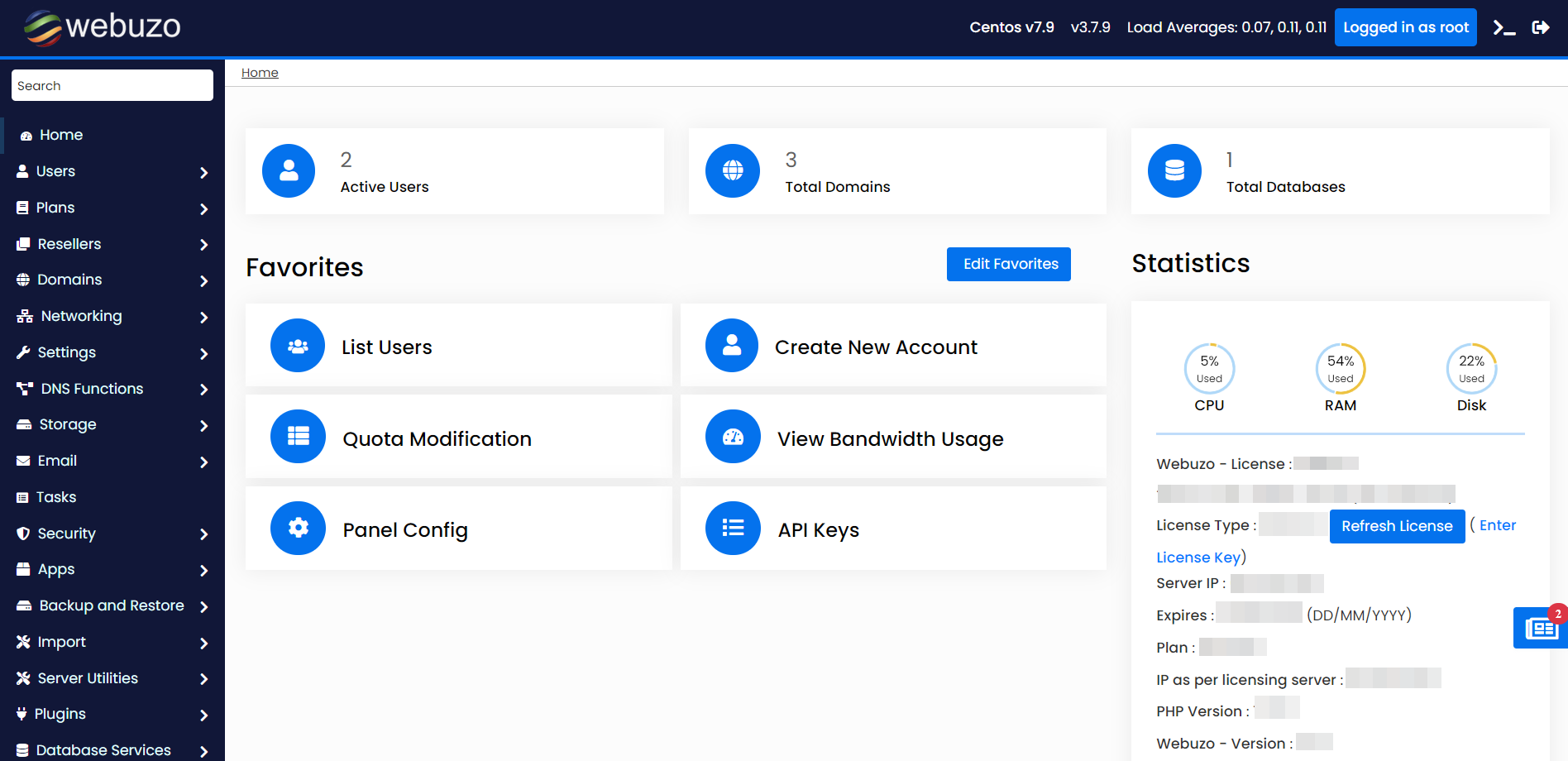
Both Namecheap and Pressidium offer free migration services to help users transfer their websites from other hosts. Namecheap uses the All-in-One WP Migration plugin for this process, ensuring compatibility with a broad range of hosting providers. This service is offered at no additional cost. Pressidium also provides free migration services, empowering users to move their sites effortlessly using several tools, including an automated migration tool and a migration wizard accessible from the dashboard. This feature ensures that users experience minimal disruption and can test their sites in a fully functional environment before going live.
Namecheap’s help center includes a comprehensive Knowledgebase, 24/7 live chat, and a secure support ticket system, providing a good range of support options for customers. They also have an extensive library of articles and troubleshooting guides available. Pressidium offers around-the-clock support from experienced WordPress engineers, with no Tier 1 or Tier 2 agents, allowing for high-quality assistance at all times. Their help center provides how-to guides and answers to common issues. Both help centers are very accessible, though Pressidium’s approach of having all support requests handled by specialized engineers gives it a slight edge.
User management
accessibility.
Score Components:
- Role customization (40%): Flexibility in creating and defining user roles and
permissions. - Ease of management (30%): User interface and tools for managing users.
- Access control (20%): Effectiveness of access control measures for different user
levels. - Scalability (10%): Ability to manage a growing number of users efficiently.
 0.0
0.0
 8.9
8.9
🏆 Winner Pressidium: A comprehensive solution for effective user management and collaboration.
When comparing the user management features of Namecheap and Pressidium, the differences are clear. Pressidium offers role-based permissions, allowing administrators to assign specific roles and access levels to various team members. User roles and permissions on Pressidium are highly customizable, enabling precise control over who can access what within the platform. Namecheap, on the other hand, lacks detailed information about user management features, making it challenging to evaluate its capabilities in this area. Thus, Pressidium stands out with its flexible and finely-tuned approach to managing user roles and permissions.
In terms of user interfaces and tools for managing users, Pressidium provides a comprehensive dashboard that includes a wide array of features. Its user dashboard supports role-based access control, SFTP user management, and database administration, all from a single login. This makes managing users straightforward and efficient. Unfortunately, without specific data on Namecheap’s user management tools, it is difficult to make a direct comparison, but Pressidium’s detailed interface clearly aims for simplicity and utility.
Assessing access control and the capability to manage an expanding user base, Pressidium demonstrates efficiency. The platform allows for the management of unlimited team members and tracks their activities through activity logs. With variable permission levels, Pressidium can accommodate teams of any size, making it scalable for businesses planning to grow. The clarity and structure provided by Pressidium ensure that administrators can maintain control and oversight as their teams expand. Again, with no detailed information about Namecheap, it’s not possible to fully gauge its effectiveness in these areas, but Pressidium’s robust features make it the preferred option.
Pressidium User Roles Table:
| Role | Description | Access highlights |
|---|---|---|
| Site Owner | The primary administrator of the website. | Full access to all site settings, user management, SFTP, and database. |
| Website Manager | Manages site content and configuration. | Access to database administration, backups, staging sites management, and plugin updates. |
Customer support
hosting provider.
Score Components:
- Support communication channels (30%): Measures the variety of customer support types
provided (live chat, chatbot, email, phone, etc.) - Availability (20%): Assesses the availability hours for each channel, including 24/7
support options. - Technical support quality (30%): Assesses whether the provider offers comprehensive
technical support, including hardware upgrades (e.g., HDD to SSD), software installations, and web
server configuration changes. - Enterprise support (20%): Checks if there are dedicated or priority support services
for enterprise-level customers.
 8.0
8.0
 8.8
8.8
🏆 Winner Pressidium: Pressidium stands out with expert-level support and additional premium features.
 |
 |
|
|---|---|---|
Phone support |
||
Live chat support |
||
Chatbot |
||
Email/ticket support |
||
Enterprise support (dedicated agent, priority support) |
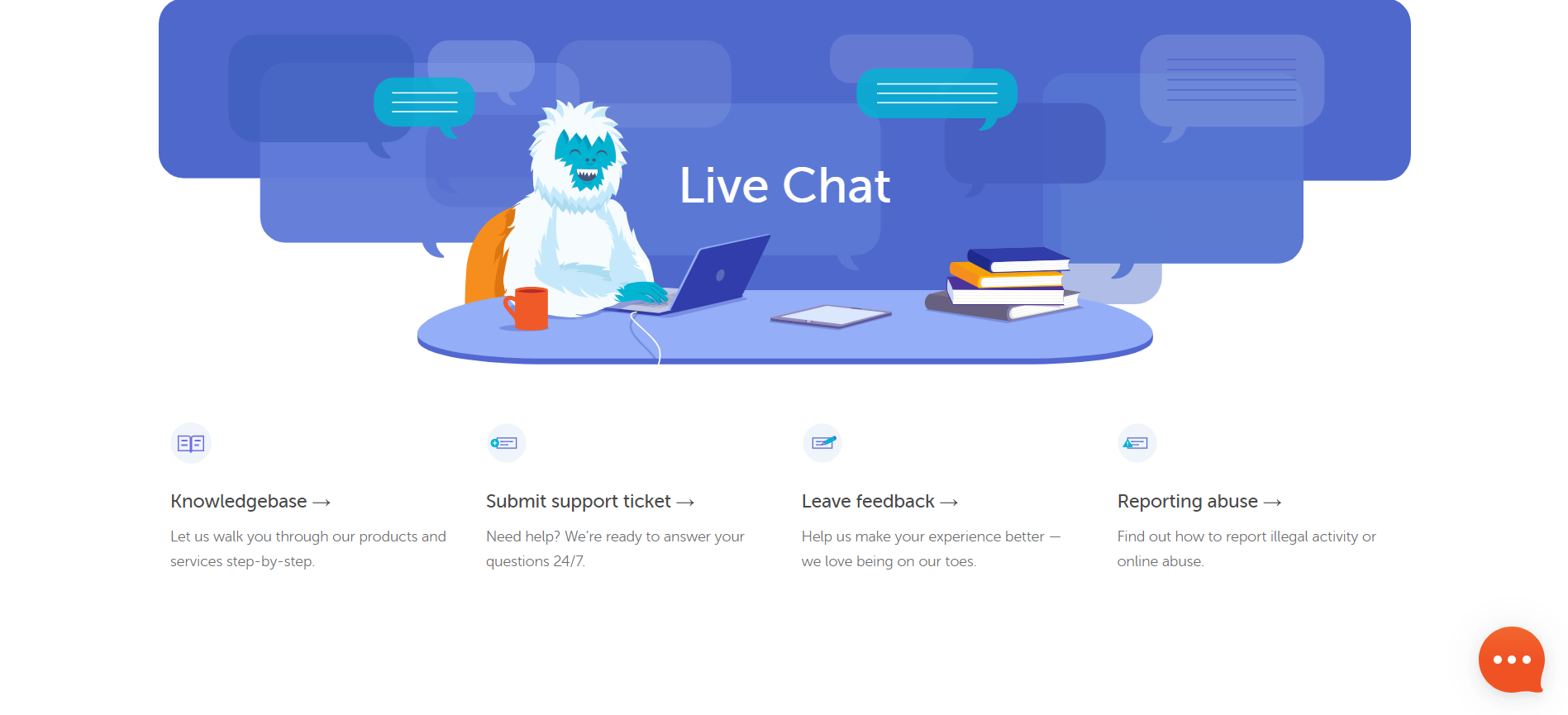
Namecheap and Pressidium both offer extensive customer support, but they approach it differently. Namecheap provides 24/7 live chat and ticketing systems, supported by a valuable knowledge base, guru guides, and helpful videos. Customers generally appreciate its quick and friendly service, though it lacks phone support, and some users have encountered issues with being directed to the ticketing system by live chat agents.

On the other hand, Pressidium focuses on quality over quantity by providing support through experienced WordPress engineers without tier-based agents, ensuring that all issues are addressed proficiently from start to finish. Pressidium also offers phone support and dedicated account managers for enterprise plans, making it a robust choice for professional and business users who seek high-level, consistent support without escalations.
Namecheap vs Pressidium: User feedback
Namecheap is highly appreciated for its affordability, reliable web hosting, and excellent customer support, available 24/7 via live chat. Users commend the inclusion of free SSL certificates and quality cPanel features, making it ideal for beginners and small to medium-sized businesses. However, some dissatisfaction is noted with the shared hosting plans, which are reported to have slow loading speeds and stability issues. Additionally, there are occasional concerns about the complexity of the user interface and the lack of multilingual support.
Pressidium comes highly recommended for its exceptional managed WordPress hosting services, particularly noted for outstanding customer support that is quick, knowledgeable, and often resolves issues on first contact. Users consistently praise the performance, security, and ease of website management, with some noting significant improvements over competitors like WP Engine and Kinsta. However, a few users mentioned initial difficulties with disabling certain plugins and the lack of some advanced features available in other platforms, though these are reportedly in development. Despite this, Pressidium’s reliable uptime and user-friendly experience make it a preferred choice for both personal and business-related websites.
Namecheap vs Pressidium: FAQ
Which platform is better suited for hosting WordPress websites?
Pressidium is better suited for hosting WordPress websites due to its managed WordPress hosting features, including dynamic load balancing, enterprise SSD storage, multilayer caching, and a global CDN. While Namecheap does offer WordPress hosting, Pressidium’s managed services and high-performance setups provide a more optimized environment specifically for WordPress users.
Are both platforms suitable for beginners?
Namecheap is more suitable for beginners with its user-friendly features, such as a website builder, cPanel interface, and a comprehensive set of tools for easy website setup. Pressidium, while offering a custom dashboard for WordPress management, caters more to developers and users with specific WordPress expertise due to its advanced features and focus on performance and security.
Which hosting service offers better security features?
Pressidium offers superior security features with managed security, real-time threat prevention, a web application firewall (WAF), managed auto-updates, and free malware removal. While Namecheap provides robust security options like two-factor authentication, SPF, Domain Keys, and virus scanning tools, Pressidium’s managed approach and comprehensive security measures make it a more secure choice.
Which platform offers better customer support?
Pressidium offers better customer support with experienced WordPress engineers available 24/7, ensuring that all issues are handled proficiently without tier-based escalation. Namecheap provides 24/7 live chat, ticket systems, and a valuable knowledge base, but lacks phone support and relies on tiered assistance, which can delay complex issue resolution.
How do the providers handle email hosting and what features are included?
Namecheap provides extensive email hosting services, including webmail access, autoresponders, spam protection tools, and up to 30 email accounts on basic plans, making it strong for integrated email solutions. Pressidium, however, does not offer built-in email hosting, limiting its appeal for users needing comprehensive email features.
The making of this blog
We followed a clear, step-by-step process to write and research this article.









